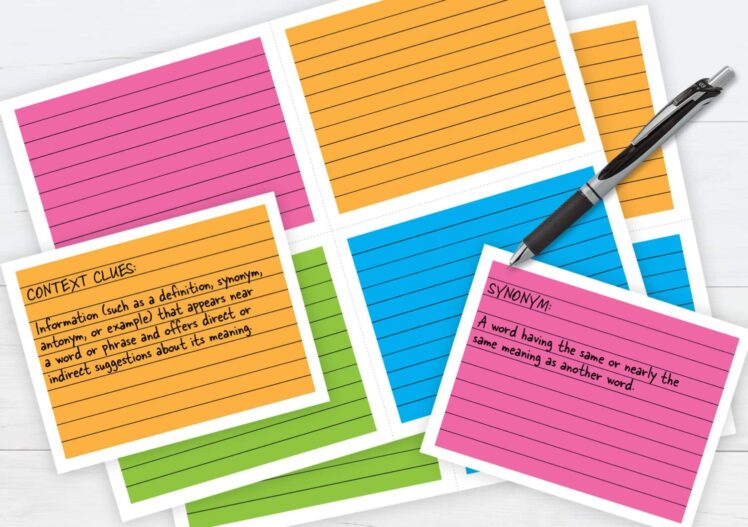Recall Efficiency: How to Boost Memory using Flashcards and Spaced Repetition

In this article, we will explore the concept of recall efficiency and how to use flashcards and spaced repetition to boost memory. Well look at the science behind recalling information, delve into why flashcards are effective, and discuss the benefits of spacing out your learning sessions for longer retention.
By understanding these principles we can learn more effectively with improved memory recall. Well also cover some tips on improving our study habits so that we can get maximum benefit from using flashcards and spaced repetition techniques.
So let’s dive in and find out how Recall Efficiency: How to Boost Memory using Flashcards and Spaced Repetition can help us remember important information better than ever before!
Benefits of Using Flashcards and Spaced Repetition for Memory Retention
The use of flashcards and spaced repetition to improve memory retention is an effective strategy for improving recall efficiency. Flashcards are a great tool because they provide an efficient way to store information in short-term memory.
By repeatedly reviewing the same material, users can strengthen their understanding of a concept or idea, allowing them to commit it more easily to long-term memory. Spaced repetition software automates this process by scheduling reviews at increasing intervals based on how well the user remembers that particular piece of information.
The result is greater knowledge retention with less active effort from the user. This type of learning system has been proven successful in many fields, including foreign language acquisition and exam preparation.
Additionally, spaced repetition systems have been found to reduce cognitive load – meaning users can memorize more effectively without getting overwhelmed by too much new information at once. Therefore, when applied correctly within a learning environment such as school or work, using flashcards and spaced repetition techniques can help learners achieve better results with less stress and fatigue.
Tips for Creating Effective Flashcards

Source: chloeburroughs.com
1. Brainstorm: Before getting into the nitty gritty of creating effective flashcards, take some time to brainstorm and come up with a comprehensive list of topics you want to cover in your flashcard set. This will help make sure that all relevant information is included on each card for maximum recall efficiency.
2. Be Specific: Make sure that each card includes specific information rather than general concepts or ideas.
For example, instead of just writing French Revolution as a topic on one of your cards, including dates, names, and key events related to the revolution which can be easily recalled when needed later on. 3.
Keep It Simple: Complexity should be avoided when it comes to creating effective flashcards; keep them concise and straightforward so that they are easy for your brain to process quickly during study sessions later on! 4. Visual Aids: Incorporating visual aids such as images or diagrams into your flashcards can help by providing an additional anchor point in memory recall down the line – this is especially useful if you are studying topics that involve more complex visuals like anatomy or geography! 5.
Balance Between Questions & Answers: Flashcards offer an ideal platform for self-testing; consider balancing out questions and answers across different cards so that you get practice answering both types effectively while you review material!
Exploring the Science Behind Flashcard Learning and Spaced Repetition
In this article, we explore the science behind flashcard learning and spaced repetition to discover how it can help improve recall efficiency. Flashcards are a popular study tool, used by students of all ages.
The cards act as a memory cue that helps you remember facts or pieces of information quickly and easily. Spaced repetition is an algorithm that works in tandem with flashcards to maximize learning retention – essentially making sure you don’t forget what you’ve learned! By combining both methods, we can boost our ability to recall key details faster and easier than ever before.
Studies have shown that using flashcards and spaced repetition for studying has proven effective in many different contexts. For example, research shows that students who studied with flashcards experienced greater improvement on tests than those who did not use them at all.
Furthermore, when paired with spaced repetition algorithms, these results become even more pronounced: Students who used both techniques demonstrated higher marks compared to those only using either one alone. The reason why these two approaches work so well together is that they each leverage different areas of cognitive processing to increase effectiveness in memorization tasks.
Flashcards require active engagement from the learner; the act of creating them forces us to think through concepts more thoroughly while also providing visual cues which aid in encoding memories into long-term storage systems such as semantic networks or episodic memories (ie., stories).
On the other hand, spaced repetition takes advantage of how humans naturally process information over time – recalling something after longer intervals strengthen neural pathways associated with it – thus reinforcing knowledge acquisition over extended periods without having to actively dig into content too often or intensely. Overall then, when combined correctly via effective implementation strategies like implementing “forgetting curves” for spacing out review sessions according to your personal memory capacity–flashcard learning reinforced by spaced repetitions can be an incredibly powerful tool for boosting our recollection abilities whether it’s used for academic success or just everyday life events like remembering where things are located around your home!
Conclusion

Source: wordtap.net
Flashcards and spaced repetition are two powerful tools when it comes to improving recall efficiency and boosting memory. Flashcards can be used to quickly review key concepts, while spaced repetition helps users focus on challenging material with greater frequency for better retention.
Gizmo is a great tool that combines both of these techniques to help users maximize their learning potential. With its easy-to-use interface, Gizmo makes sure students have the resources they need to succeed in any academic environment.





